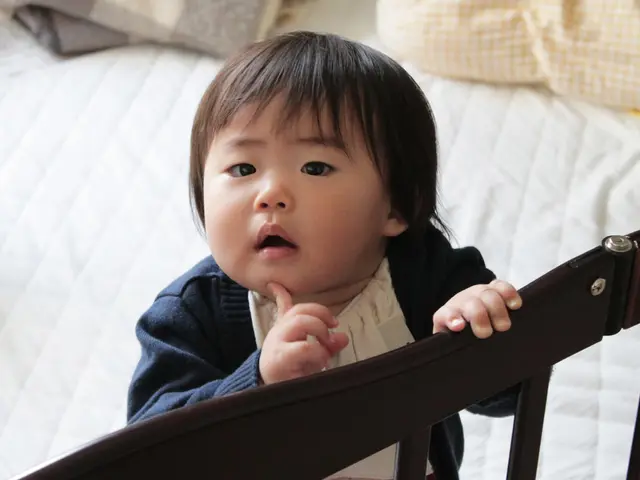Persisting Gender Inequity in Child Rearing Duties and Responsibilities
Persistent Gender Divide in Childcare and Household Management in Russian Families
According to recent data from Rosstat, the burden of childcare and household management in Russian households remains predominantly on women. The study reflects a considerable disparity between the time spent by men and women on these tasks, as reported by TASS.
Women aged 15 and over spend an average of 30 minutes daily on child-rearing, accounting for 2.1% of their daily time. Men, in contrast, spend only 11 minutes (0.8%). Workingly men dedicate 13 minutes per day to childcare, while non-working men contribute just 3 minutes.
Comparing the data from 2019, the previous study year, women's time spent on children has decreased significantly. Five years ago, women devoted approximately 48 minutes daily to childcare, whereas men spent 16 minutes.
Women are responsible for an average of 3 hours and 23 minutes of household chores daily, more than twice the time men spend, which is only 1 hour and 32 minutes.
Time Allocation in Russian Families
- Work: Women - 3 hours 30 minutes, Men - 5 hours 3 minutes
- Education: Women - 7 minutes, Men - 10 minutes
- Free Time: Women - 3 hours 53 minutes, Men - 4 hours 24 minutes
The findings suggest the persistence of traditional role distribution in Russian families, where women shoulder the main burden of childcare and household management. This persists even when women are employed.
Increase in Pregnant Student Allowances
The government has announced plans to elevate pregnant student allowances to 90,000 rubles, though further details are yet to be provided.
Background:The gender division of labor in Russian families remains skewed, with women disproportionately responsible for childcare and household tasks. Structural factors, including childcare availability and deeply rooted gender norms, significantly influence this distribution (source: various studies).
Traditional gender stereotypes and societal expectations reinforce the idea that domestic work and childcare are primarily women's responsibilities. This division is common across various societies, reflecting entrenched cultural expectations about gender roles within the family.
Limited childcare provisions tend to increase women’s responsibilities at home, thereby widening the gender gap in unpaid household labor. Economic factors, such as labor market conditions and childcare availability, impact the gender division of labor. For instance, in cases of insufficient childcare support, women often reduce their participation in market work to meet household and childcare demands, thereby exacerbating the unequal distribution of unpaid domestic labor (source: multiple research).
In summary, the current gender division of labor within Russian families remains unequal, with women carrying a disproportionate responsibility for childcare and household tasks. Structural factors, including childcare availability and enduring gender norms, play a significant role in this division (source: various studies).
- Despite the increase in pregnant student allowances to 90,000 rubles by the government, the persistent gender divide in childcare and household management in Russian families continues to exist.
- The heavier burden of family-health responsibilities and health-and-wellness care for children, particularly in the realms of women's-health and parenting, disproportionately fall onto women in Russian households.
- In light of the heavier time allocation for household chores and childcare among women, it is crucial to address the underlying factors, such as limited childcare provisions and traditional gender stereotypes, to achieve a more balanced distribution of family responsibilities.








